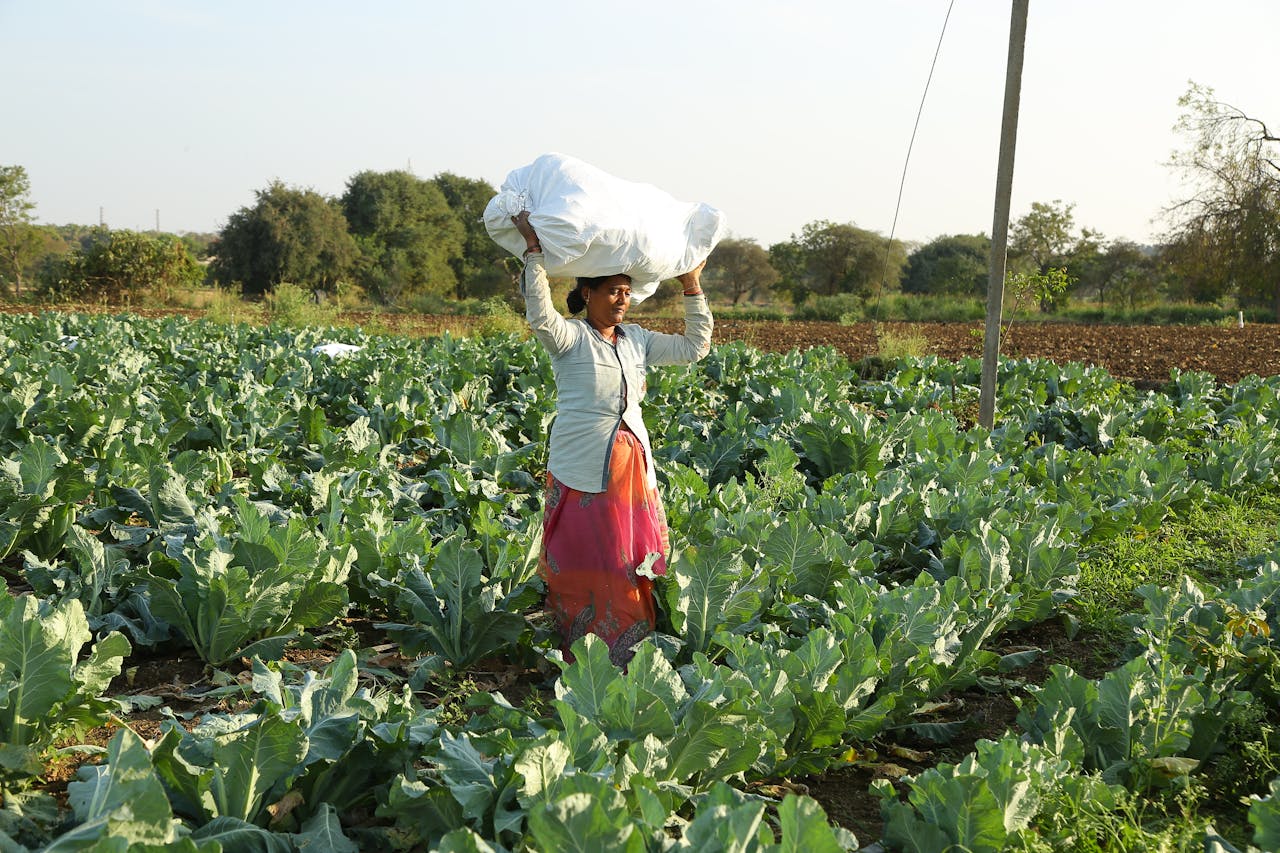Canada News
Putting women and girls front and centre in climate leadership

More disruptions are projected to intensify the situation, with 14 million women at risk of losing access to contraception over the next decade. (Pexels Photo)
Tangible examples of the impact of climate change are getting our attention more and more: from tornadoes in locations where twisters were previously unknown to winter conditions that now make maintaining outdoor skating rinks nearly impossible.
What’s easy to overlook is the fact that the places where this is happening – countries with the highest greenhouse gas emissions – actually suffer the least from the climate crisis. On average, low- and middle-income countries suffer the effects of changing weather patterns far more and in more consequential ways.
But that’s not all.
Zoom in closer and you’ll find another, more pernicious injustice unfolding: women and girls in the Global South are among the lowest contributors to the climate crisis in the world, yet they are bearing a disproportionate share of the brunt.
As is well-documented by the United Nations and various watchdogs worldwide, women and girls suffer longer and more severely from climate shocks and disasters than men and boys.
Droughts force them to walk longer distances for water; failed harvests mean they struggle to feed their families; and extreme weather events force migration and displacement – all while damaged infrastructure cuts off their access to critical resources, including contraception.
The ripples of reproductive health
To say that a lack of access to sexual and reproductive health and rights creates a ripple effect is a gross understatement. Without quality, comprehensive, consistent access to these services, women and girls will continue to be prevented from meeting their full potential.
Each time a girl is forced to drop out of school, or a woman is made to abandon her aspirations, she and her community both suffer. Conversely, for women to navigate the impact of intensifying droughts, landslides and flooding, they need the autonomy to decide if or when to become pregnant.
This is especially true in conflict settings, where one in five displaced women experience sexual violence. With the World Bank predicting that climate-related crises could displace more than 216 million people by 2050, there is an urgent need to scale up the availability of reproductive health access for the world’s most vulnerable.
Analysis from MSI Reproductive Choices, an NGO working around the world, paints a stark picture. Across 26 climate-impacted countries, an estimated 11.5 million women and girls have had their access to contraception disrupted since 2011 due to climate-related displacement.
More disruptions are projected to intensify the situation, with 14 million women at risk of losing access to contraception over the next decade. This could lead to an additional 6.2 million unintended pregnancies and 5,800 maternal deaths.
Encouraging work is being done in this area, thanks in no small part to Canadian leadership.
Global Affairs Canada is supporting several initiatives being put forward by MSI Reproductive Choices aiming to improve and protect access to reproductive health services in Mali, Ethiopia, Ghana and Malawi. In each of these countries, the climate crisis is already causing major repercussions.
Putting the G7 to good use
Where Canada’s efforts in promoting and supporting women’s health really shine, however, is within the G7.
In 2010, when then-prime minister Stephen Harper held the presidency of what was at that time the G8, Canada used that platform to launch the Muskoka Initiative on Maternal, Newborn and Child Health.
This commitment of $2.85 billion over five years in low- and middle-income countries laid the groundwork for a decade of continued investment in women’s and children’s health.
In 2017, Canada’s feminist international assistance policy sought to place women and girls at the core of international assistance efforts, with an emphasis on access to sexual and reproductive health services. Canada continues to champion these values through its advocacy in international fora, particularly within the G7.
Now, as Canada prepares to assume the G7 presidency once again in 2025, the need for strong global leadership on behalf of the planet’s most vulnerable inhabitants has never been greater.
The gender gap in disaster preparedness
Under hazy skies, opportunities for ground-up climate disaster policy changes
This is not simply a call for more resources. It is the recognition that gender equity and climate resilience are two sides of the same coin.
By championing the integration of comprehensive access to sexual and reproductive health services into climate funding, Canada can set a clear, ambitious and progressive tone for its upcoming presidency. This would send a long-overdue message: that women and girls are not just victims of the climate crisis but have the solutions and energy to help solve the problem.
With the freedom to make choices about when or if to have children, women are better placed to take on decision-making roles at community and national levels, driving sustainable solutions to climate challenges.
Girls with access to comprehensive health services are more likely to finish their education and pursue careers, providing them with greater economic stability and resilience in the face of disasters.
Canada is well-placed to lead the way in making this a reality by demonstrating that true leadership means purposefully supporting the most marginalized and empowering new voices to be part of the solution.
This article first appeared on Policy Options and is republished here under a Creative Commons license.





















